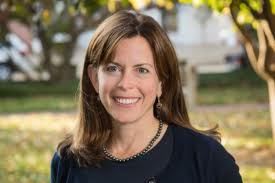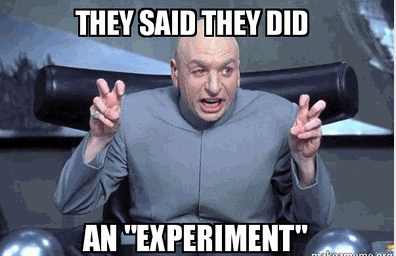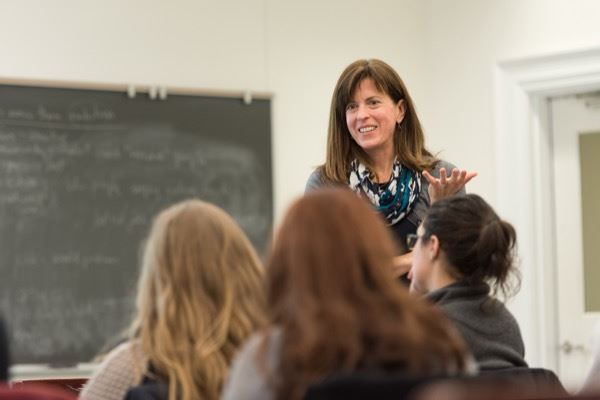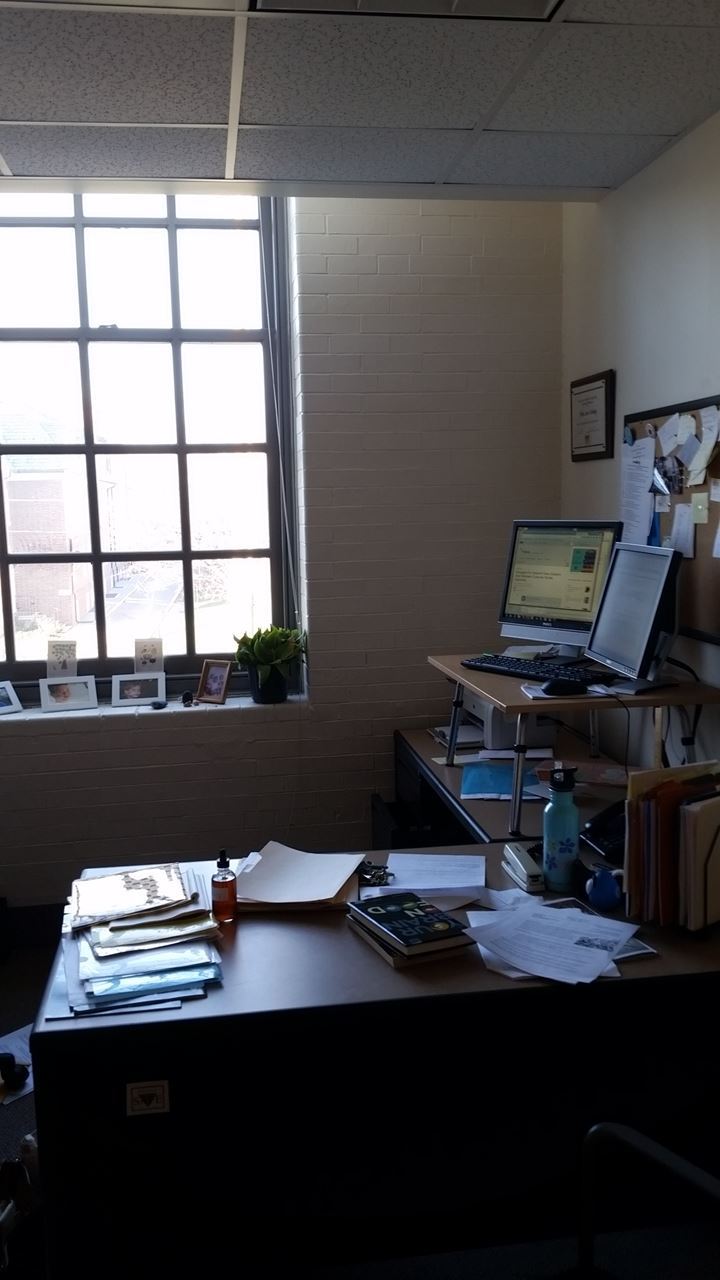 School name: University of Delaware (I’m in a teaching-focused position)
School name: University of Delaware (I’m in a teaching-focused position)
Type of school: R1 University. We offer the Ph.D. in social, clinical, cognitive psychology and in behavioral neuroscience.
School locale: Medium-sized university town
Classes you teach: Research Methods. Cultural Psychology. The Social Self (400 level). Teaching of Psychology (Graduate).
What’s the best advice about teaching you’ve ever received?
First, set aside “sacred time” for writing in your schedule. Lots of people say that, because it works. Good college teachers are scholars, and scholars write.
Second, Stephen Chew is my evidence-based teaching mentor. I like to say, All I really need to know, I learned from Steve Chew. Through him, I learned about the “rule of three” (students need at least three exposures in order to master a new concept) about the power of misconceptions, about concept inventories, about metacognition. He can be your hero, too: Here’s his video series for teachers.
For their small teaching gifts, I’d like to thank my Twitter friends who push wonderful content and tips at me every day. There’s Sue Franz and her Technology for Academics blog, which taught me, for one, about akindi. Thanks, too, to Jessica Hartnett and her “not awful and boring” blog, and for introducing the makeameme website. I went a little crazy with that last semester. For example:


What book or article has shaped your work as a psychology teacher?
For course design, Fink’s Creating Significant Learning Experiences is probably the most important. Fink suggests that we design courses with the end in mind. What do you want students to be able to do when the course is over? (that’s your learning goal) What does it look like when they can do that? (that’s your final assessment). How do you get them there? (those are your teaching and learning activities). I mention this approach in every presentation I give, and my graduate course in the teaching of psychology is designed around his self-directed guide.
My daily teaching style has been inspired by examples from The Learning Gap, by Hal Stevenson and James Stigler, a book I’ve assigned in cultural psychology classes. This book reports their investigation of primary school teachers, students, and parents in Japan, China, and the U.S. It’s about gradeschools, but I’ve found it applicable to teaching college classes. They describe how Asian teachers achieve coherence, give feedback to students, and develop learner-centered classrooms. For a taste of what it covers, read this short piece from the NYT.
 Tell us about your favorite lecture topic or course to teach.
Tell us about your favorite lecture topic or course to teach.
I love it all! Research methods is one of my favorites because students have the steepest growth curve in that class. They come in to the class thinking that every study has to generalize to the population of the world. But they leave being able to identify, graph, and critically evaluate almost any psychology study they encounter in the popular press. I love teaching cultural psychology because some of the studies we read simply blow them away (It doesn’t get much better than Heine et al., 2001). And I love teaching Social Self, because students are so excited to read the literature on self-justification, self-control, and self-esteem. Students are particularly engaged when they notice the huge gap between the promise of high self-esteem and the empirical reality of it. In contrast to what they’ve heard, people with low self-esteem have good relationships; high self-esteem isn’t a social panacea, and saying “I love myself” makes low-self-esteem folks feel worse. What’s not to love about all this wonderful content?
Describe a favorite in-class activity or assignment.
Psychology teachers have the best content in the world, but our main goal is to educate scientifically minded, quantitative reasoners. Therefore, I have the most fun working with students in class to understand empirical evidence. My favorite activities involve describing a result to them and asking them to create a table or graph that depicts it. Alternatively, I’ll show them a “scary” graph or table of results, and we’ll figure out what it means. Students feel so empowered by this process!
What teaching and learning techniques work best for you? (quizzes? homework? take home exams?)
In upper-level classes, I give students their final exam questions in advance. These are difficult, essay questions in which students are asked to combine, evaluate, or apply the empirical research they’ve read all semester. In Social Self, they prepare 8-10 questions and I choose 4 for the final. Students end up reviewing and consolidating almost everything they’ve read, and we have great conversations in office hours as they develop their answers. I’m willing to share example questions with folks who send me an email.
 What’s your workspace like?
What’s your workspace like?
My favorite part is the huge window. And inspired by a contributor to this blog, I transitioned to a stand-up desk. I love it because I get uncomfortable sitting down for too long. But my office is not that well organized or decorated. In fact, when I see the offices of the other How I Teach contributors, I feel I need to step up my game! Somebody, please come decorate my office. Thank you.
Three words that start with E and that best describe your teaching style.
Empirical, enthusiastic, engaged.
What is your teaching philosophy in 8 words or fewer?
“Write the perfect test, then teach to it.”
Tell us about a teaching disaster (or embarrassment) you’ve had.
I can’t believe I’m telling this story, but for a few years, I would abbreviate the word “thought” on the whiteboard when we would sketch out arguments or graphs. (I can’t bring myself to put down how I spelled it; you can look it up.) Every time I did it, I’d hear some students giggle, but I thought it was because the abbreviation was kind of cute. FINALLY, students in my class informed me that the word has a crude slang meaning! I was SO embarrassed. The next class period, I solemnly promised the class that I would never have used a crude, misogynistic term in jest. Thank goodness I have good rapport with students! It has often prevented small missteps like these from escalating.
What is something your students would be surprised to learn about you?
I totally resonated with something Neil Lutsky wrote on this blog’s inaugural post: “do students realize how much skin I have in every class?” I leave every class thinking, “Oooh—I gotta fix that.” “I better start next class by saying …” or “I wish I had time to ….”
Also, I’m not sure they’d be surprised, given my enthusiasm in the classroom, but I was a cheerleader and on the drill team in high school (Kearney High School in Nebraska!).
What are you currently reading for pleasure?
I love fiction and I’m a bit of an Anglophile. I learned about Barbara Vine (Ruth Rendell) books when the author died last year, and I’m reading them one after the other. They are all so different from each other and from the stuff I read at work. I’ve also read every book by Joanna Trollope. The characters in her books are so well-behaved!
What tech tool could you not live without?
Yes. J
What’s your hallway chatter like? What do you talk to colleagues about most (whether or not it is related to teaching/school)?
I like to say that I have a “3-3-3” load: Three classes each semester and three boys at home. I actually limit hallway chatter to get work done. I live a pretty wonderful but pretty dull life, and if forced into small talk, I’m one of those people who can only discuss “stuff I heard on NPR.” I’m such a cliché!
PSYCHSESSIONS UPDATE: Listen to Garth and Eric talk with Beth about her initial avoidance of Research Methods towards eventually writing a book about it!
https://psychsessionspodcast.libsyn.com/e020-beth-morling-textbook-author-nitop-insider-mental-tattoos
